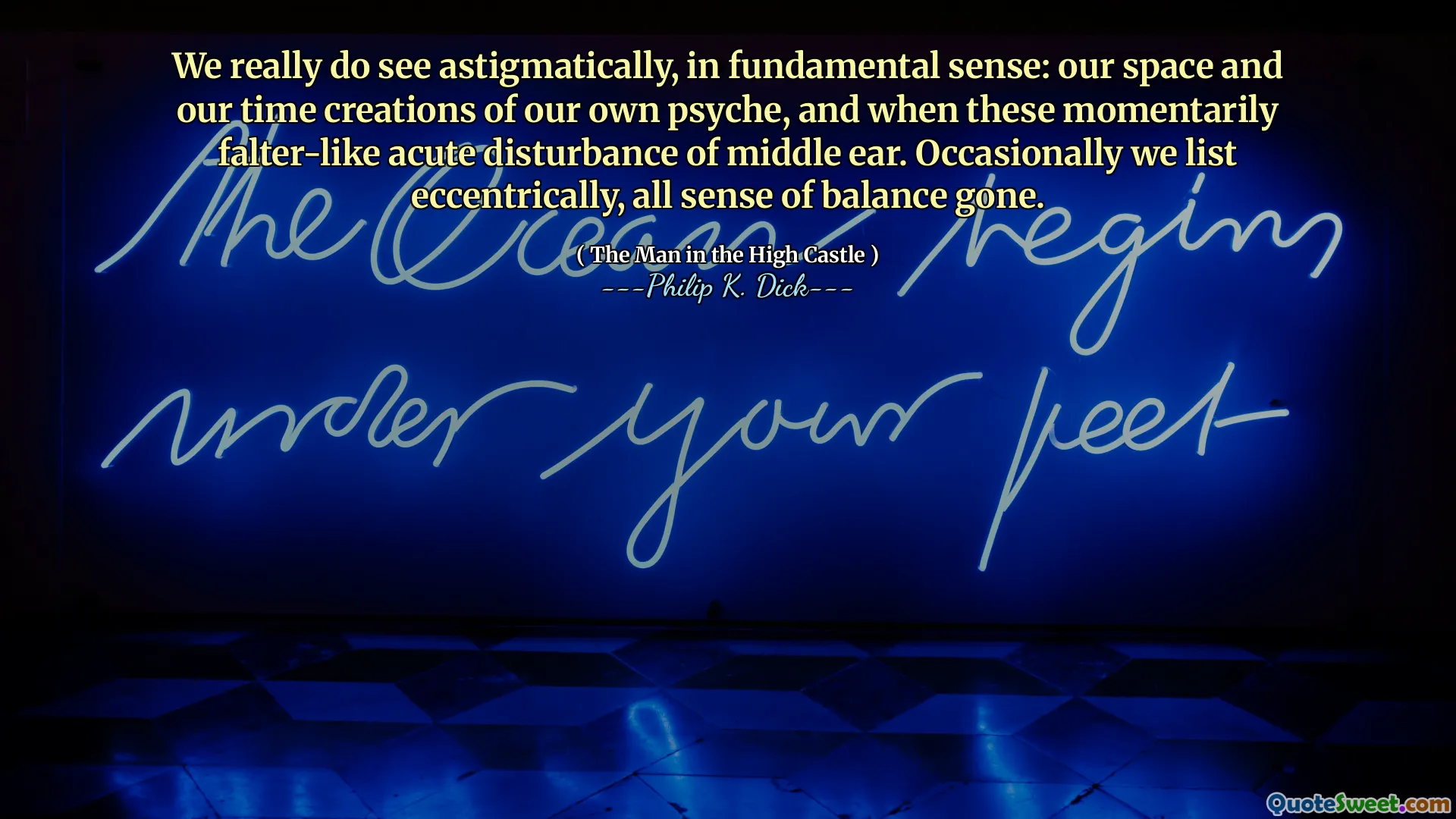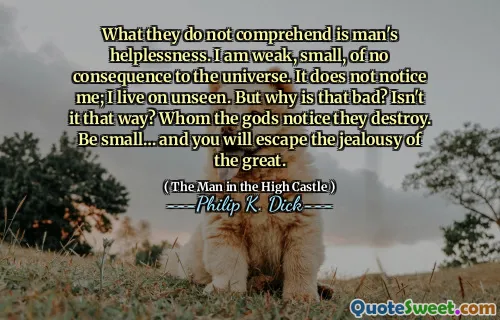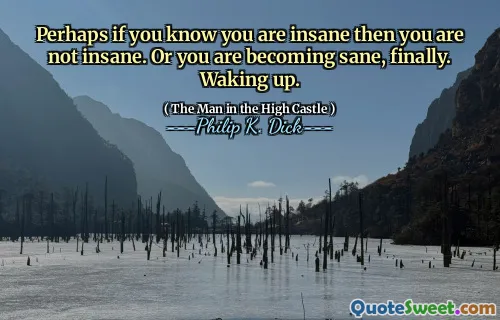
We really do see astigmatically, in fundamental sense: our space and our time creations of our own psyche, and when these momentarily falter-like acute disturbance of middle ear. Occasionally we list eccentrically, all sense of balance gone.
In "The Man in the High Castle," Philip K. Dick explores the concept of perception, suggesting that our understanding of space and time is a construct of our minds. This idea implies that reality is often subject to distortion, akin to the disorientation experienced with issues in one's equilibrium, such as a disturbance in the middle ear. When our cognitive faculties momentarily falter, our grasp on the surrounding world can become unstable, akin to losing balance.
This notion underscores how subjective our experiences can be, as they are influenced by personal and psychological factors. The characters in the novel embody this struggle, hinting at the fragility of their reality and how easily it can be altered by internal and external disruptions. Dick's work invites readers to reflect on the nature of their own perception and the complexities of reality.











